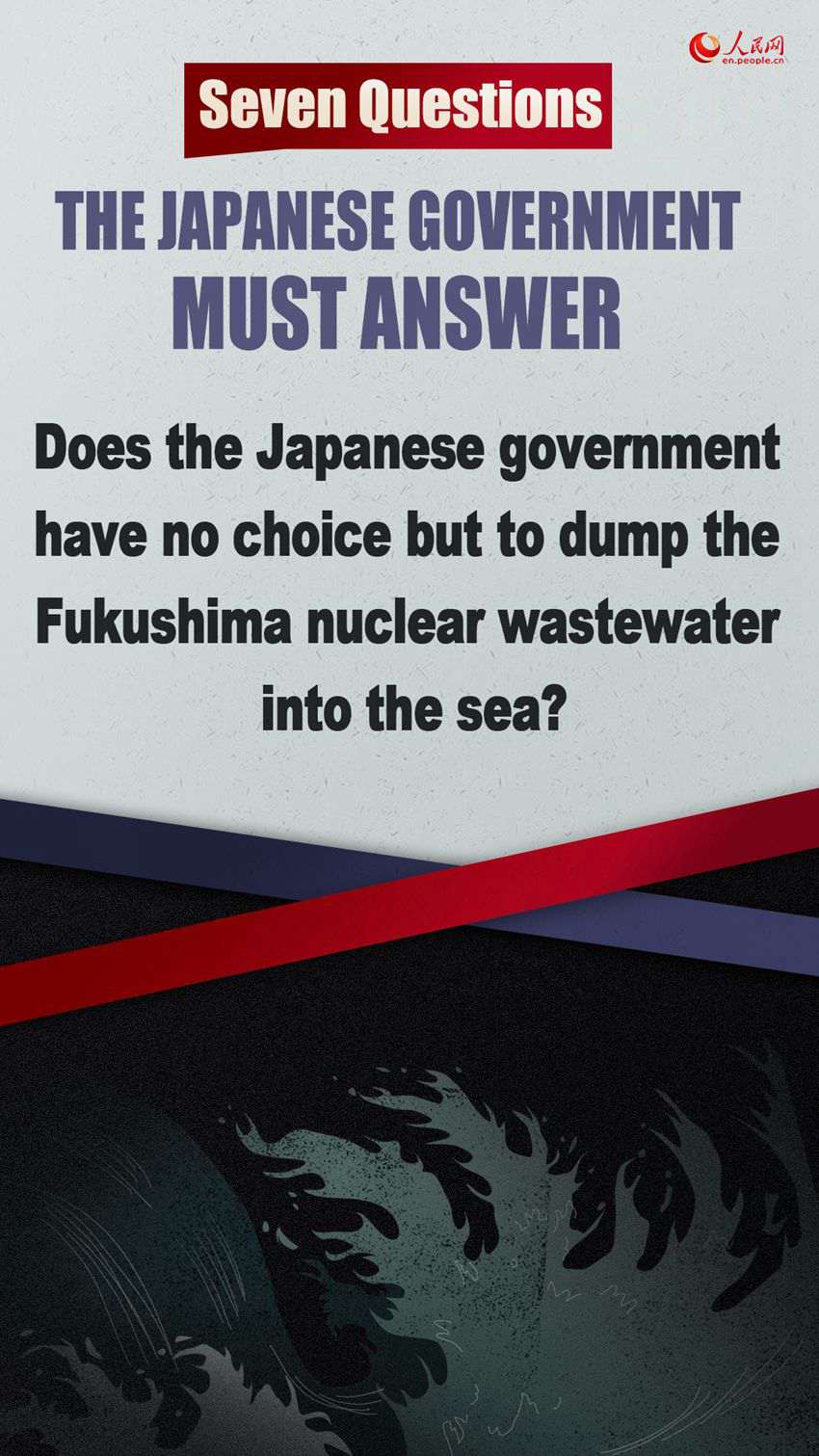Seven questions the Japanese government must answer on its decision to discharge nuclear wastewater into sea
Does the Japanese government have no choice but to dump the Fukushima nuclear wastewater into the sea?
The Fukushima nuclear accident is one of the most serious nuclear disasters in world history, the aftereffects of which involve the decommissioning of the nuclear plant and disposal of large amounts of radioactive materials. Japan has proposed five different ways to dispose of the radioactive wastewater contaminated by the crippled plant:
1) releasing the water as a hydrogen gas into the atmosphere,
2) injecting the water into layers of the geosphere,
3) conducting an underground burial,
4) discharging the water through vapor release, and finally,
5) discharging the water directly into the ocean.
Before it even exhausted all of the potentially safe ways for disposing of the wastewater, Japan instead unilaterally opted for discharging the contaminated water into the sea, which happens to be the option with the lowest cost to the country’s economy. By doing so, however, it has presented an enormous environmental health and safety risk to the world and has shifted its own responsibilities and burdens onto the whole of humankind. Such a rash move goes against the greater interests of the international community, and would be a highly irresponsible and selfish decision if finally acted upon.
 |
Photos
Related Stories
- China backs ROK's call for int'l organizations to cooperate on Fukushima issue
- 6.1-magnitude quake strikes off Japan's Hokkaido Prefecture, no tsunami warning issued
- Japan expedites vaccine campaign for seniors amid criticism over sluggish rollout
- Japan extends state of emergency in six places to May 31 over COVID-19
- Japan gov't set to extend, expand virus state of emergency
Copyright © 2021 People's Daily Online. All Rights Reserved.











